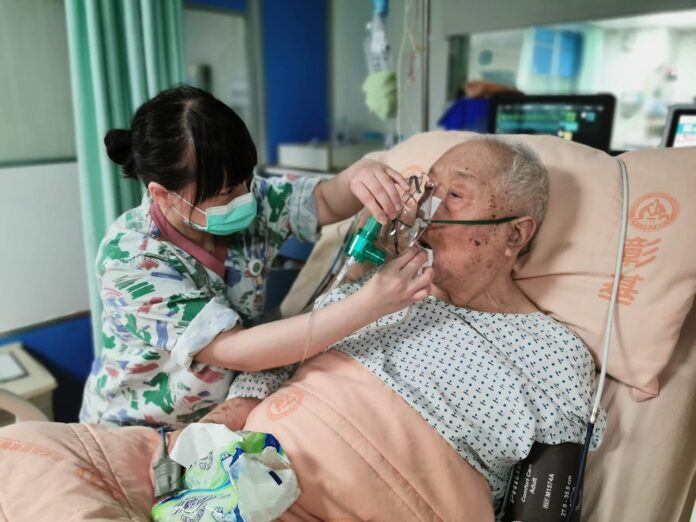A hospice nurse from Los Angeles has been shedding light on one of life’s biggest mysteries: what happens in our final moments. Julie, known to her 1.3 million TikTok followers as @hospicenursejulie, has dedicated her life to caring for patients in their last days. Along the way, she’s also become a compassionate voice on social media, breaking the silence around death and easing fears about the unknown.
Julie’s work as a hospice nurse isn’t just about medical care—it’s about guiding both patients and families through an emotional and spiritual journey. Through her honest and heartfelt posts, she’s offering a rare glimpse into what really happens at the end of life.
One of the most touching things she’s shared is the commonality in people’s final words. Speaking with The Sun, Julie revealed that most dying patients express love before passing, often saying, “I love you,” or calling out to their parents—who have usually passed on. These moments are deeply emotional and offer a profound sense of connection, even in the final hours.
@hospicenursejulie #hospicenursejulie #nurse #learnontiktok #ForzaHorizon5GO #nursesoftiktok ♬ original sound – 💕 Hospice nurse Julie 💕
But death isn’t a one-size-fits-all experience. While Julie notes that every individual is unique, she explains that those dying naturally often exhibit similar physical signs during what’s called the “actively dying phase.” This can include changes in breathing, shifts in skin color, terminal secretions, and a deep fever. While these symptoms may sound alarming, Julie assures families they’re a natural part of the process—and not painful.
“Our bodies know how to take care of themselves at the end of life,” she explained. “The less we intervene, the better.”
Julie also takes on the many myths about hospices, aiming to dispel fears and misconceptions. For instance, it’s not true that everyone dies shortly after entering hospice care, nor does morphine speed up death, as many believe. One of the most harmful misconceptions, she says, is that “hospices kill people.”
Her favorite part of the job? Helping families navigate what can feel like a terrifying experience. Julie sees it as her mission to educate, support, and bring peace to both the dying and their loved ones. “The best part about my job is educating patients and families about death and dying,” she shared. “Helping them understand what to expect and supporting them emotionally and physically makes all the difference.”
Death may still be a taboo subject for many, but thanks to Julie’s courage and compassion, countless people are learning to face it with understanding—and even a sense of peace.
What do you think about Julie’s insights? Let us know in the comments, and share this story with someone who needs to hear it today.




